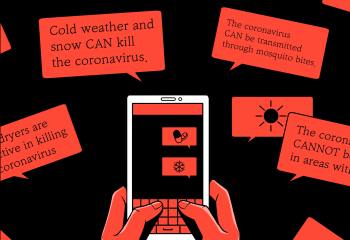
Researchers found anti-vaccination discourse on Facebook increased in volume over the last decade, and increasingly emphasizes civil rights
A recent study led by the George Washington University’s Institute for Data, Democracy & Politics’ associate director David Broniatowski found that anti-vaccination discourse on Facebook increased over the last decade, uniting around the argument that vaccine refusal is a civil right.
For this study, published on October 1, 2020 in the American Journal of Public Health, researchers examined more than 250,000 posts on 204 Facebook pages expressing opposition to vaccines between October 2009 and October 2019. While opposition to vaccines can take many forms, the researchers found vaccine opponents online coalescing around the “civil liberties” argument that individuals have the right to refuse to take a vaccine. As federal agencies, scientists and companies work to develop and manufacture a safe and effective vaccine for the novel coronavirus, this finding could have critical public health implications.
“Framing vaccine refusal as a civil right allows vaccine opponents to sidestep the science, and instead debate about values, especially the value of freedom of choice,” Broniatowski said. “However, this is a case where one person’s exercise of that freedom can hurt everyone else.”
The study showed that anti-vaccine discourse online evolved following three distinct events: the measles outbreak at Disneyland in 2015, the release of the film “Vaxxed” in 2016 and a worldwide measles outbreak in 2019.

As the world inches closer to an effective vaccine, it is imperative that public health agencies and advocates develop effective messages for communicating fact-based rationales for vaccination. However, the researchers are also urging public health agencies and advocates to consider different approaches and messages to engage with civil liberties arguments beyond the fact- or science-based rationales to vaccinate.
Image (top) by Gustavo Fring on Pexels.


